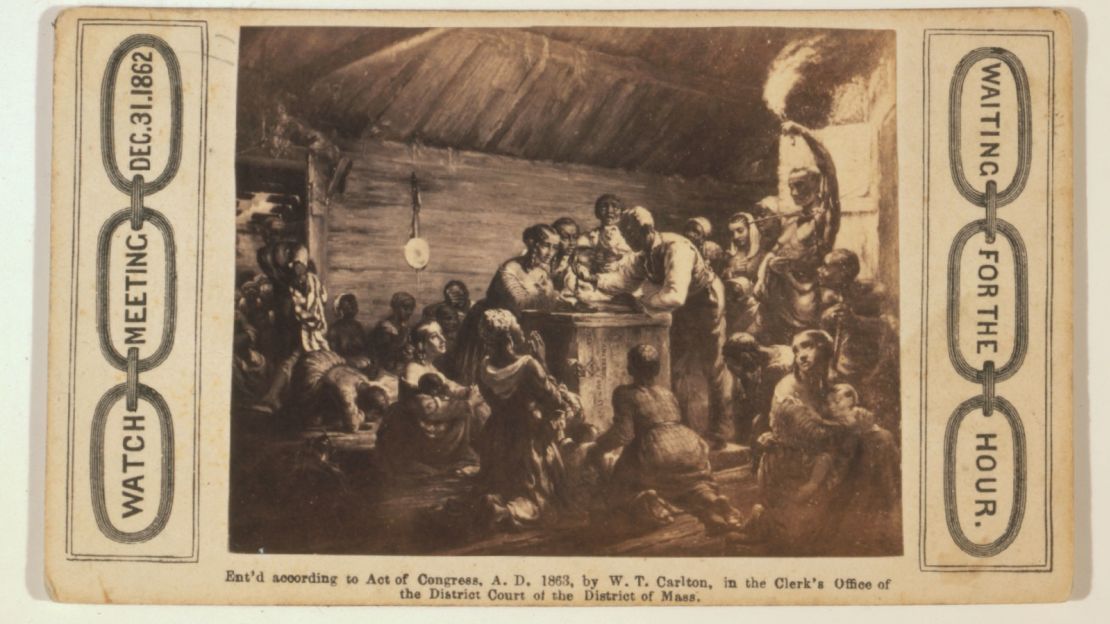Countdown to freedom
After Union troops halted the advance of the Confederacy in the Battle of Antietam, the bloodiest single day of the Civil War and in American history, President Abraham Lincoln issued the preliminary Emancipation Proclamation on September 22, 1862. It declared that all enslaved people living in states in rebellion against the Union would be set free on January 1, 1863, the day Lincoln would sign the final document.
“People knew on December 31, 1862, that it was the coming of a new day,” Kate Masur, professor of history at Northwestern University, said. “So, the watch night tradition took on a new meaning and Black Americans in many places, in the free states, in the slave states, assembled for watch night meetings, celebrating the coming of freedom.”
Abolitionist Frederick Douglass was among those who gathered that watch night, or “Freedom’s Eve,” to anxiously await the New Year. Douglass, who legally gained his freedom in 1846, attended a watch night meeting at Tremont Temple in Boston, waiting for news that the Emancipation Proclamation had been officially signed, said Emily Blanck, associate professor of history and American studies at Rowan University.
“‘We were waiting and listening as for a bolt from the sky, which should rend the fetters of four millions of slaves’,” Blanck said, quoting from Douglass’ autobiography.
A formerly enslaved woman named Aunt Phoebe Bias attended a watch night meeting in Washington, DC, shortly before her death. Bias’ account of the service was retold in the 1942 book, “They Knew Lincoln,” by John E. Washington. The book was republished in 2018 with a new foreword by Masur.

Watch meeting, Dec. 31, 1862--Waiting for the hour / Heard & Moseley, Cartes de Visite, 10 Tremont Row, Boston. Heard & Moseley/Library of Congress
According to Washington, Bias, who had been enslaved in Virginia, heard of a “big watch-meeting” on Dec. 31, 1862, at her church “where important White and colored men would speak about President Lincoln and the Emancipation Proclamation.”
Bias told Washington she decided to attend the service, which began around 10:00 pm with a sermon. Then, a copy of the Emancipation Proclamation was read out loud, according to her account.
As the church clock ticked closer to midnight, attendees cried and prayed for God to lead them from bondage, according to Bias’ account. They also prayed for Lincoln.
“They had prayed for freedom. That night it came,” Washington wrote, recounting Bias. “When the city bells rang in the New Year – the year of their freedom, men and women jumped to their feet, yelled for joy, hugged and kissed each other and cried for joy.”